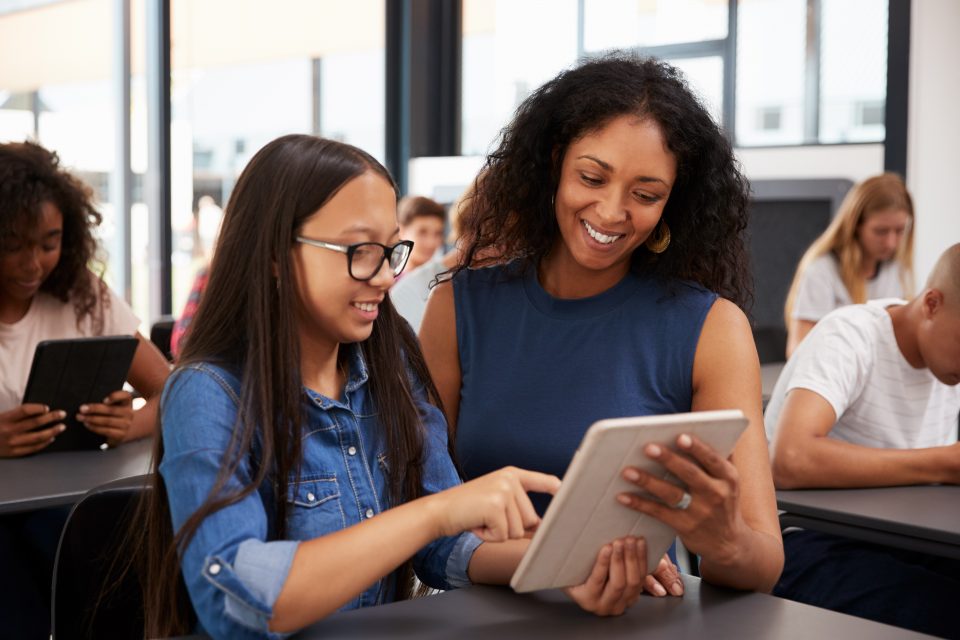
In the dynamic landscape of education, fostering student engagement has become a cornerstone of effective teaching. One of the most potent catalysts for engagement is the power of student-teacher relationships. Beyond textbooks and lectures, these connections wield the potential to transform learning experiences and elevate academic success. In this blog, we’ll delve into the profound impact of these relationships, uncover strategies to strengthen them, and explore their role in shaping the future of education.
1. The Importance of Student Engagement in Education
Student engagement isn’t just a buzzword; it’s the heartbeat of successful learning. It encompasses a student’s emotional investment, active participation, and enthusiastic commitment to the learning process. Engaged students are more likely to retain information, excel in assignments, and develop critical thinking skills. Moreover, engagement transcends the classroom, nurturing a lifelong love for learning.
2. The Role of Student-Teacher Relationships
At the heart of engagement lies the bond between students and teachers. A positive, nurturing relationship creates a safe space for students to express themselves, ask questions, and take risks in their learning journey. When students feel valued and understood, they are more inclined to embrace challenges and explore their potential.
3. Factors Influencing Student Engagement
Engagement isn’t solely determined by curriculum and teaching methods. The integration of technology, relevance of the subject matter, and the learning environment all play pivotal roles. However, even in a digital era, the human connection remains unparalleled in its impact on student motivation and involvement.
4. Benefits of Enhanced Student-Teacher Relationships
The rewards of cultivating meaningful connections reverberate far beyond the classroom walls. Academically, students with strong relationships exhibit higher grades, increased attendance, and a more profound grasp of the subject matter. Emotionally, they experience reduced stress levels, higher self-esteem, and a greater sense of belonging.
5. Strategies for Building Strong Student-Teacher Relationships
Building these relationships isn’t a one-size-fits-all endeavor. It begins with active listening, where educators empathetically tune into their students’ thoughts and concerns. Creating a welcoming classroom environment and showing genuine interest in students’ lives further solidify these bonds. These efforts, though seemingly small, lay the foundation for a lifelong connection.
6. Fostering Inclusivity and Diversity in Student Relationships
In today’s diverse classrooms, inclusivity is key. Teachers must be attuned to cultural nuances, actively embracing and valuing each student’s background. By acknowledging and celebrating diversity, educators pave the way for more meaningful connections that transcend traditional barriers.
7. Leveraging Technology to Enhance Student Relationships
Technology isn’t a replacement for personal interaction; rather, it’s a tool to enhance it. Virtual office hours, online platforms, and digital communication channels can bridge geographical gaps and create opportunities for one-on-one connections, even in remote or hybrid learning environments.
8. Real-Life Success Stories
In schools around the world, stories abound of teachers who’ve forged connections that ignited transformational change. From students overcoming learning obstacles to excelling academically, these anecdotes underscore the profound impact of teacher-student relationships on both the academic and personal fronts.
9. Overcoming Challenges in Building Student Relationships
While the benefits are undeniable, establishing connections can pose challenges, particularly in larger classes or virtual settings. Educators can tackle these hurdles by implementing innovative strategies like peer mentoring, individualized check-ins, and interactive group activities that foster a sense of community.
10. The Future of Student-Teacher Relationships
As education continues to evolve, so will the dynamics of teacher-student relationships. With the integration of AI, adaptive learning technologies, and global collaborations, educators will have unprecedented opportunities to connect with students on a global scale, tailoring education to individual needs while nurturing a sense of belonging.
Conclusion
In the grand tapestry of education, student-teacher relationships stand as threads that bind the fabric together. The power of connection, manifested in these relationships, has the potential to revolutionize the learning experience. As we navigate the educational landscape of tomorrow, let us remember that while curricula may shift and technologies may advance, the human connection will remain the cornerstone of engaged and inspired learning.



